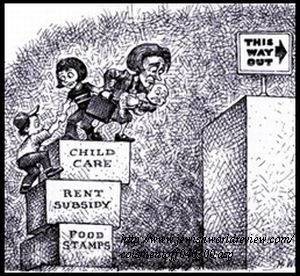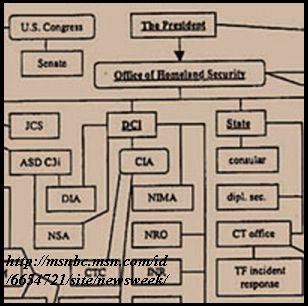 Job 30:15-17 (King James Version)
Job 30:15-17 (King James Version)
“15Terrors are turned upon me: they pursue my soul as the wind: and my welfare passeth away as a cloud.
16And now my soul is poured out upon me; the days of affliction have taken hold upon me.
17My bones are pierced in me in the night season: and my sinews take no rest.”
The other day I watched a bit of a Senate debate about some obscure piece of legislation that would allow American corporations doing business overseas to minimize their tax burden once the overseas profits are “repatriated” and brought back into the United States. It was nothing but corporate welfare. The Republican majority wanted to give the corporations some sort of repatriation tax break of about 104 billion dollars. That might seem like chump change to a lawmaker, but to us rank and filers it’s really big money. As someone (most claim it was Everett Dirksen) once said, “A billion here and a billion there and pretty soon you’re talking about real money.”
The Democrat in me was outraged. Why should we give America corporations who’ve been doing business overseas get such a benefit? Well, Byron Dorgan, Democratic senator from North Dakota, took up my cause. He pleaded against the legislation, arguing that the proposed windfall was close to being obscene. If the government had 104 billion dollars to spare, he argued, it would do better to put it into government welfare programs, to advance the cause of America’s poor.
Dorgan had me until he mentioned the word “programs” along with the word welfare. Once he uttered that word, though, he lost me. As far as I’m concerned the government would do a lot better if they just gave the money to the poor. I’d support that option.
The problem with welfare lies in the programs themselves. They have never solved the problems they were intended to. They never will.
After hearing the Senate debate I dug into a few statistics about welfare programs in the United States. I can’t speak to welfare programs like farm subsides since I’m not a farmer. But, I can speak to welfare programs like “aid for dependent children” or whatever it is called these days. I’m an expert on that, an insider. I grew up in the system. I was a beneficiary. I know how it works.
According to U.S. government statistics compiled in 2002, the nation spent 78.5 billion dollars on welfare programs (AFDC, food stamps, Medicaid) for the poor. That’s real money. Of that total, 24 billion actually made it to the intended recipients. While that is no doubt real money, it represented only thirty-one percent of the total. Thirty-one percent! Sixty-nine percent of the total, 54 billion dollars, were spent to cover the administrative and overhead costs of the programs. That’s obscene! And, that’s why I could never, in good conscience, support welfare programs. If the government were really interested in eliminating poverty it would do a whole lot better to just give the money to the poor.
One would think that legislators would understand this. Most of them come to Washington after years in the private sector. Surely they know there isn’t a corporation or small business in America that would survive in the marketplace with that kind of overhead. Yet, that’s what America is subsidizing in welfare programs. It’s insanity. What’s even more insane is the way everyone from legislators to administrators to pro-poor activists vehemently support these programs.
What our welfare programs really amount to is nothing more than a national fools’ errand.
Years ago Everett Dirksen hit the nail right on the head:
“One time in the House of Representatives (a colleague) told me a story about a proposition that a teacher put to a boy. He said, ‘Johnny, a cat fell in a well 100 feet deep. Suppose that cat climbed up 1 foot and then fell back 2 feet. How long would it take the cat to get out of the well?”“Johnny worked assiduously with his slate and slate pencil for quite a while, and then when the teacher came down and said, ‘How are you getting along?’ Johnny said, ‘Teacher, if you give me another slate and a couple of slate pencils, I am pretty sure that in the next 30 minutes I can land that cat in hell.”
That’s what welfare programs do. For every one foot of progress a poor person makes in the system, administrators, legislators, bureaucrats, and assorted do-gooders throw two feet of obstacles in the way. Given time in the system, the poor, like the cat, will eventually wind up in some sort of socially created hell.
Beyond the money, though, lies the really insidious belly of the welfare beast. The government’s misguided attempt to institutionalize compassion has created a system that delivers few, if any, of the promises it makes. Why doesn’t all the money thrown at the problem work? At the core of the welfare system is a stereotype - the noble bureaucrats working tirelessly on behalf of the helpless poor. And, along with the stereotype comes the core strategy – keep the poor indebted, keep them in their place, and maintain the system’s power over them at all costs.
By now most of the do-gooders and bureaucrats reading this post are grinding their teeth. That’s good. Grind away. I speak from experience. I grew up in the welfare system. I know what it’s really like.
I found early on in my experience in the system that the only way I could survive within it was to act out the stereotype. My father had died when I was about six years old. He was an alcoholic. His death plunged my mother into a deep depression. The depression was so deep that she spent years in “institutions of compassion.” Among the compassionate deeds were periods of shock treatments and medications that I’m now convinced did nothing but compound her problems. When they were done with her she weighed eighty pounds; she was a shell of a human being. But, she somehow managed to overcome the social manipulation and experimentation. Years later I found that what drove her to overcome wasn’t the nobility of her benefactors. It was her love for us. Try as they might, they couldn’t purge that from her. So much for stereotypes.
My brother, sister and I also overcame. It took time, but we escaped the system. God’s grace worked its way through the cracks and past the impediments the system put in our way.
But, the welfare system is built on stereotypes, so those responsible for its maintenance need to foster them. And, they’ve been enormously successful at getting public support from them.
In a 2001 NPR poll, forty-eight percent of respondents believed that the poor aren’t doing enough to change their lot in life. Forty-four percent believed that poor people living on welfare don’t want to work. Forty-six percent believe that welfare recipients have it easy. And, astoundingly, forty-seven percent believed that the government could eliminate poverty by spending more money on welfare programs.
One of the things I find fascinating about the polls often taken about welfare is that you’ll rarely find questions like “Do you think the government is spending too much money on administrative and program costs and too little on the needs of welfare recipients?” I think it’s in part because the poll takers have swallowed the stereotypes themselves.
I often wonder how much money could go directly into the pockets of poor people if we conducted fewer studies about poverty and welfare. I’d be willing to bet that public interest groups and consultants have conducted billions of dollars on studies on the subject. I’d love to see those billions directed more altruistically, but I’d less than realistic if I believed something like that would happen. No, in my lifetime I’m sure that from time to time I’ll see the press print something like, “In a recent survey on poverty and welfare…..” Better to study a problem than fix it.
By now some of the teeth gnashing of my detractors has turned to rage. I can almost hear the responses. Republicans would say, “You’re a flaming socialist” or “Why should I be required to support bums who don’t want to work?” Democrats would say, “We really do care” or “We can fix the problem.” The do-gooders would insist that their nobility will win out in the end.
Well, my detractors are dead wrong. I’m far from being a socialist. I believe the free enterprise system works. I believe that most people living in poverty have the internal means to make their way in this world as well as anyone else. What they lack is opportunity. It’s being denied them because of the system we’ve put in place to “take care of them.” I lived a good part of my life in poverty and, contrary to what some believe, I know that most people living in poverty aren’t bums looking for a handout. In fact, given the opportunity, they could compete quite admirably with those who call them bums. As for the mantra of caring, I’d really like to believe it, but, the system that’s been created puts that lie to rest. Welfare is one of the least caring systems ever devised by man. As for the notion that our politicians can devise a system to fix the problem, it’s nothing but pure mythology designed to subtly maintain the status quo. For too many politicians, most of them Democrats, keeping people in a state of poverty means votes in elections. The perpetual champions of the poor are perpetually elected and the poor who elect them are perpetually kept in their proper state of dependency. Let me also disabuse the do-gooders of their notion of nobility. You really want to maintain a safe distance between themselves and the poor. Without that, you would have nothing to hide what’s really lurking in the evilness of your heart.
I have two pieces of advice for the legislators, administrators, and do-gooders who have created and continue to perpetuate this God-awful system. First, just give the money away. That would be a far better solution than the system you’ve created. The poor can spend it every bit as responsibly as you have, probably more so. And second, stop trying to separate yourselves from the poor by using your nobility as the wedge.
Do that and you’ll find that the poor want the same things in life that those of you with resources want:
“As a single mom of four young children, I've seen firsthand that it does take a village to raise a child.”
“Now back up a village?”
“You bet. Only, not the kind of village that Hillary Rodham Clinton seems to envision, one with lots of federal spending and government programs and day care. That kind of stuff is easy. It doesn't really ask anything of us. I mean the kind of village where adults are committed to sacrificing of (themselves) for their own children and the children in the community. A village where we recognize that the needs of children are not for federal dollars or programs, but for human and spiritual connection, connection to something bigger than themselves.”Technorati tags for this post:
PovertyThe welfare state 







